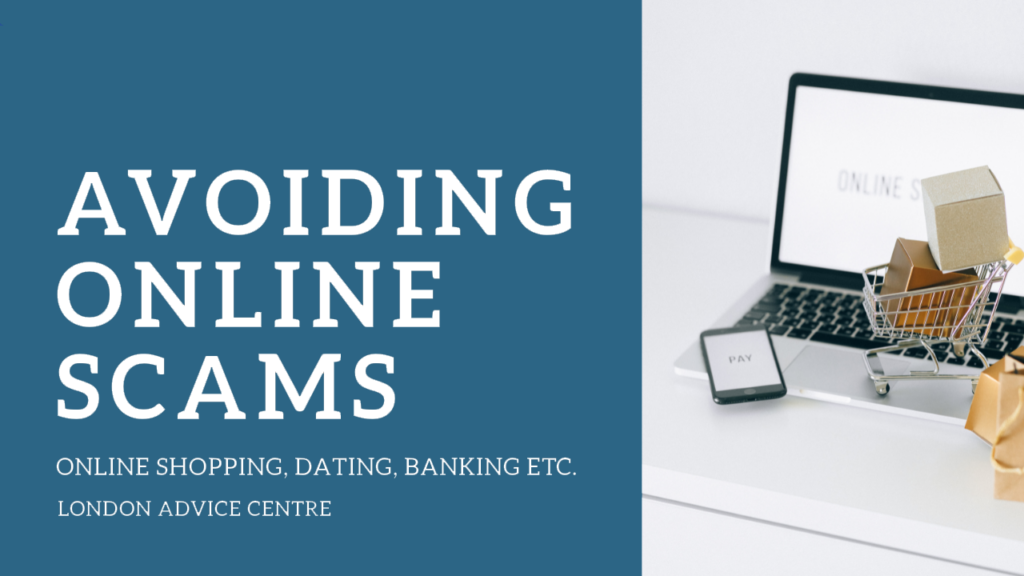
The convenience of online shopping is unmatched. Browse and buy from the comfort of your own home? Amazing. Click and collect while you’re out and about? Incredible. But it does leave you open to online scams.
We’d like to give you some advice on how to avoid scammers and keep yourself safe online.
Are they recognisable?
When you’re browsing online, make sure you recognise the company or person. If it’s a company you know and have used before then go for it, make the purchase. But if you do not recognise them, a quick internet search a or checking their online reviews to see what others think could go a long way in seeing if you can trust this them.
If they have contacted you and you do not recognise the organisation or individual, do not click on their link until you have established them as a trustworthy source as the link itself may be misleading. Maybe an organisation you do know has reached out but they have contacted you differently, an email instead of a letter perhaps, you should be cautious. Unless you are confident with who they are, don’t move forward with them.
Don’t click the link
Before you click any link or take any action, have a good read of their message. Check their grammar and spelling in particular. Real companies that care about their audiences will have really thought the content through and will always proof-read their messages, so spelling and grammar mistakes are highly unlikely.
If you have followed a link, never hand out passwords, personal details (especially bank details) if you have not confirmed them to be trustworthy. Even if you don’t have to enter any details immediately, being on the site may cause malware to spread to your device – if you have clicked the link, disconnect it from your network/Wi-Fi immediately to stop it spreading to other devices connected to your network. A little bit of research into a company or individual can go a long way in avoiding online scams.
Checking out
If you’re about to ‘check-out’ in an online retailer and enter your payment details, make sure you’re paying in a way you are familiar with such as debit or credit card, or third parties such as PayPal or WorldPay. Standard ways of paying make it easier to follow the money and therefore easier to recover your finances. Other options of pay may also be accepted (such as crypto currencies) but be sure you understand fully what you’re handing over and to who you’re giving it to. Always read the T’s and C’s.
Clicking on good looking ads is also a quick way to fall into a scam. If someone is advertising something unrealistic, or too good to be true ideas then it probably is.
Coronavirus
Coronavirus is causing new online scams to crop up at the moment occurring as texts or emails. If you do not recognise the company, phone number, or email address do not hand over any details (personal, bank etc). Even seemingly irrelevant information like pet names or primary school details can be used to access your accounts too. The scams can include
- fake test and trace (official notifications will come from the NHS directly)
- texts claiming to be the government potentially issuing ‘relief’ or fining you
- shopping and retail (to purchase hand sanitiser, face masks, etc). These may be overpriced and easier to spot, but to be sure to only shop at trusted sites
- door-to-door (home-testing, cleaning, shopping for vulnerable people etc)
So, a quick refresher:
- Don’t click the link
Whether that be in emails or texts, don’t click the link, or call the phone number listed. Make sure you independently research the organisation/individual and follow up on their message.
- Check their grammar
Even if their email or phone number looks legitimate and their website address appears normal, ensure the spelling and grammar is correct. Chances are the mistakes are intentional by the scammer to avoid those actually paying attention.
- Pay your way
Make sure you pay in a way you know and understand, such as debit or credit card, or trusted third party systems like PayPal.
- Does it sound too good?
If it sounds like the deal of a lifetime, it’s probably too good to be true.
If you’re worried you’re being scammed, contact your bank ensure they decline any unusual payments. Then report it to Action Fraud or contact Citizens Advice Scams Action for more help and information.